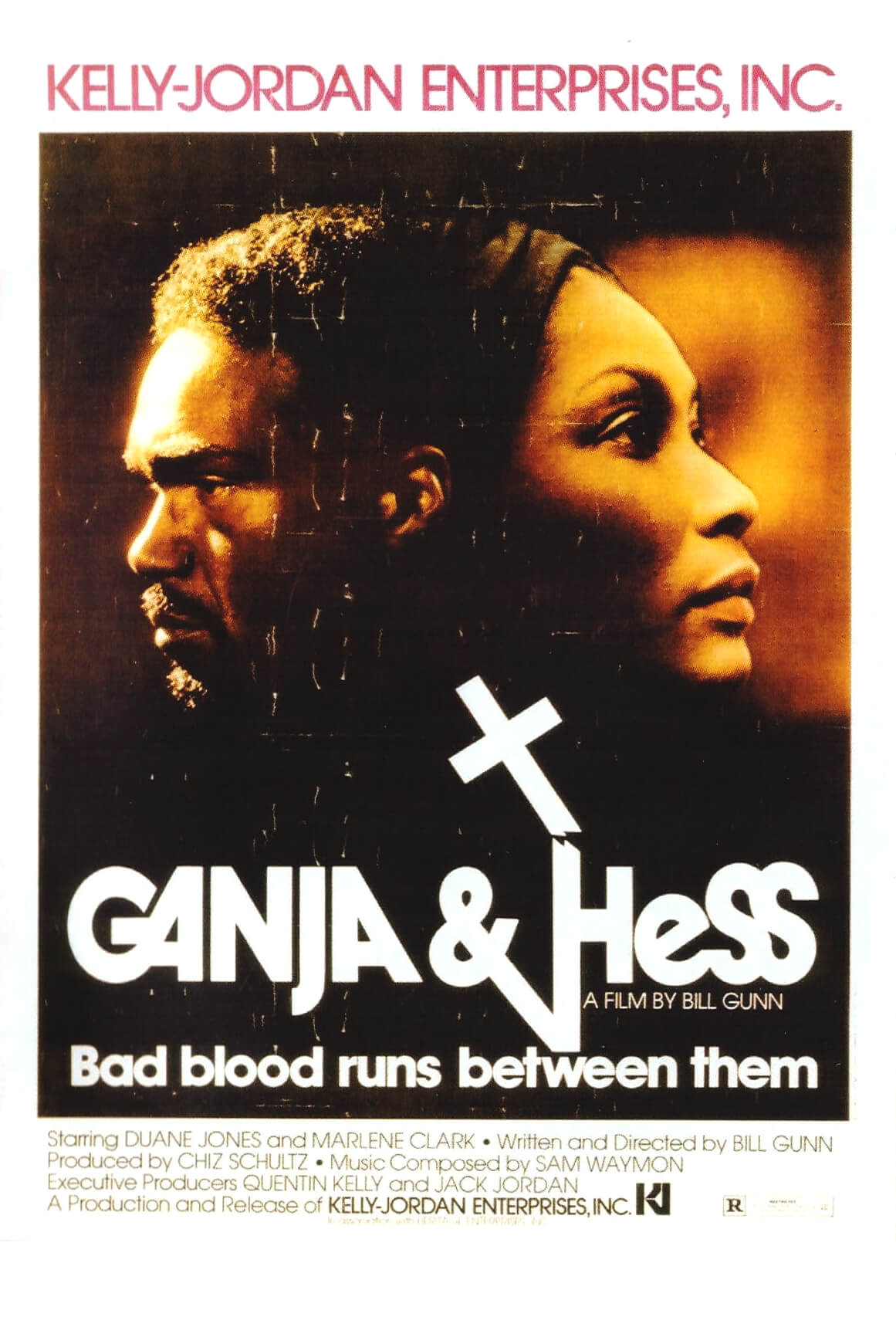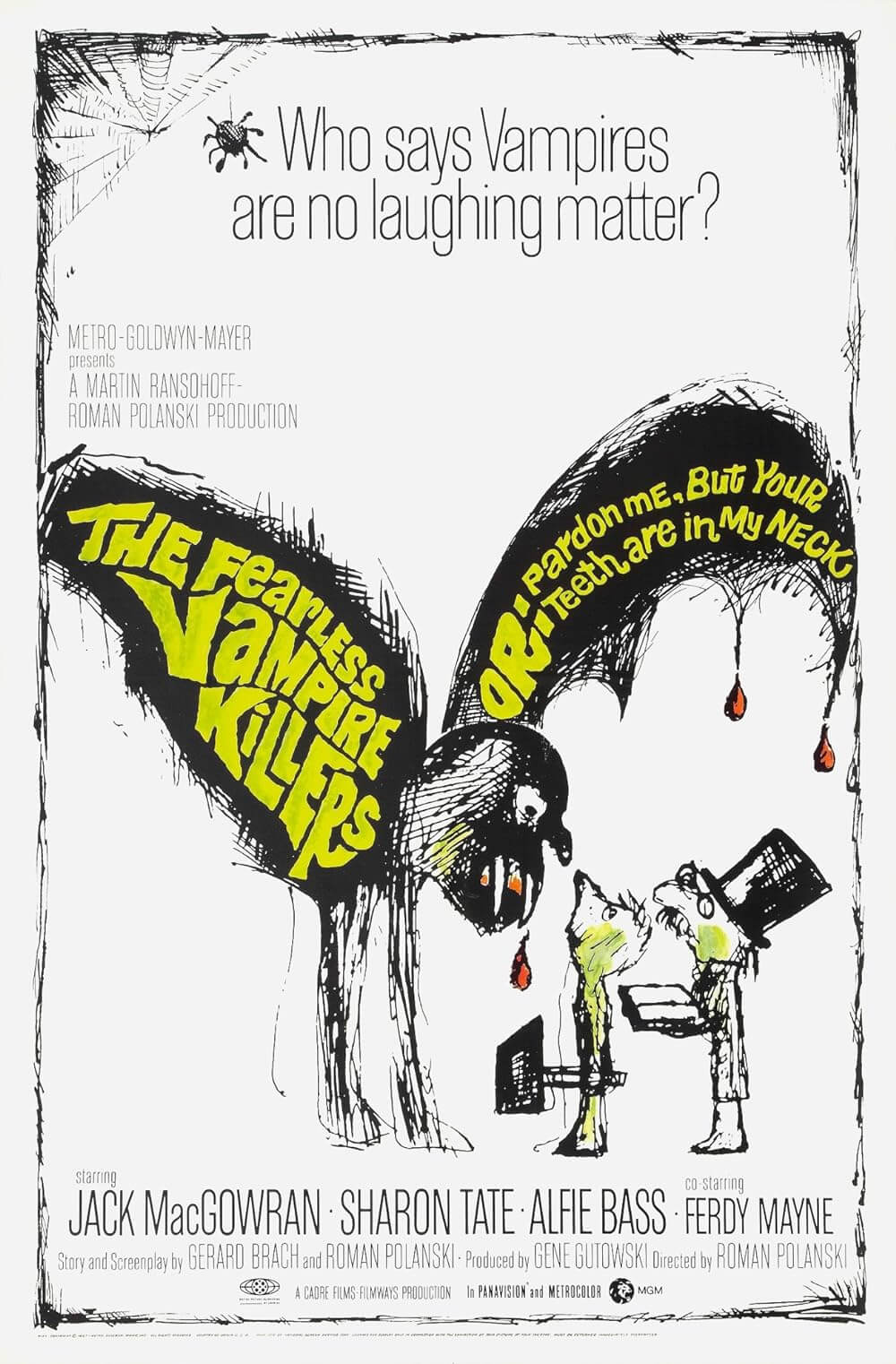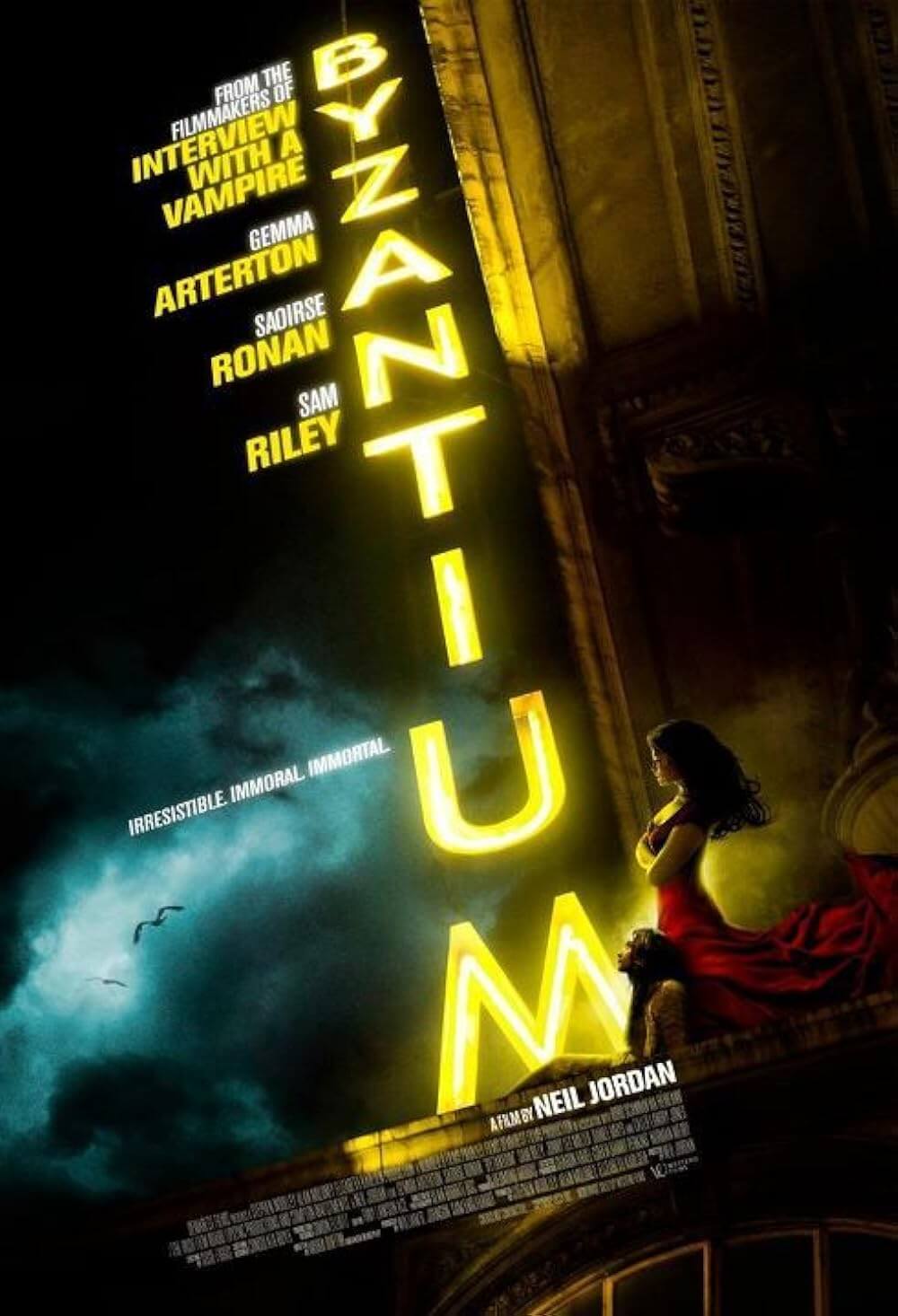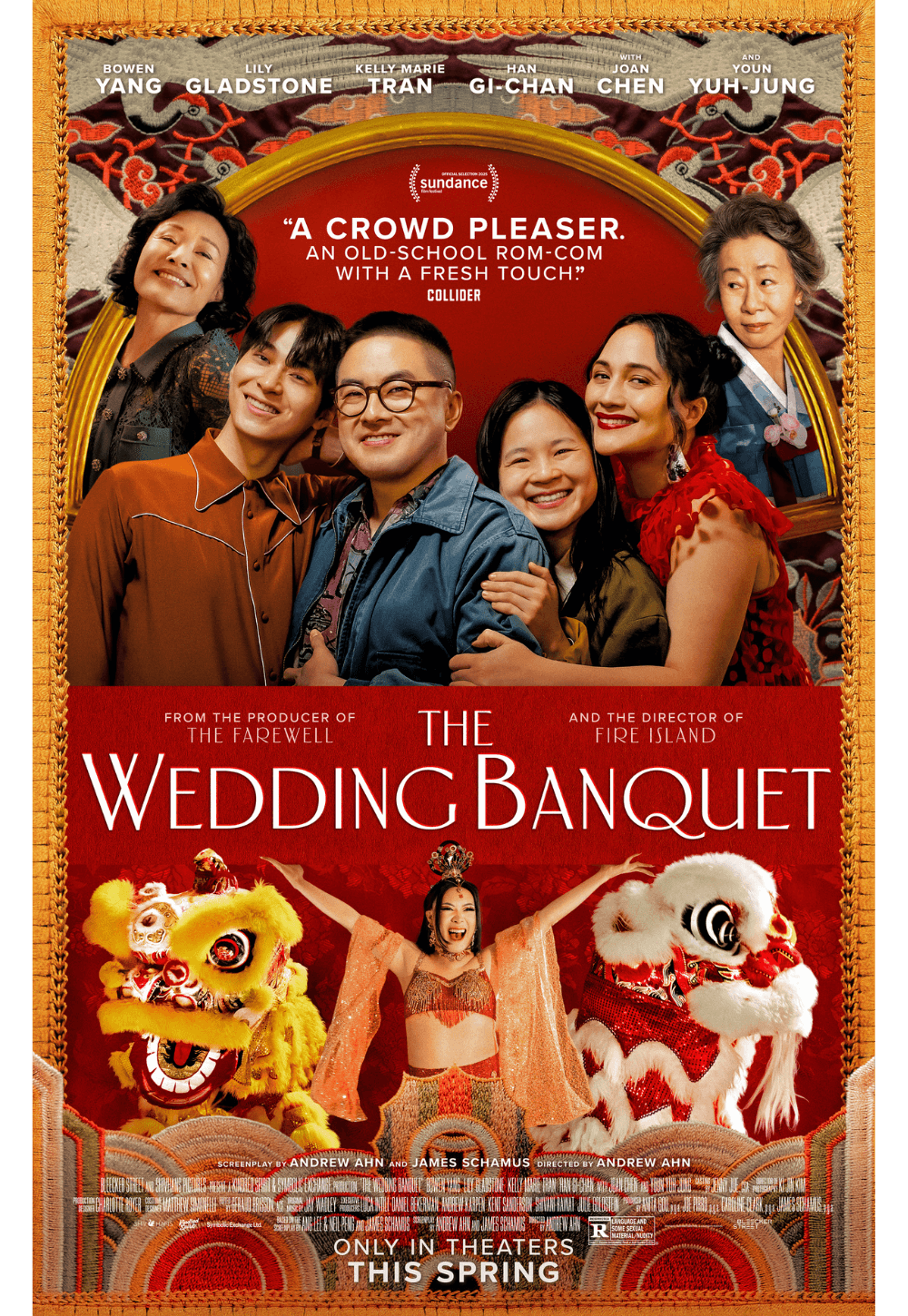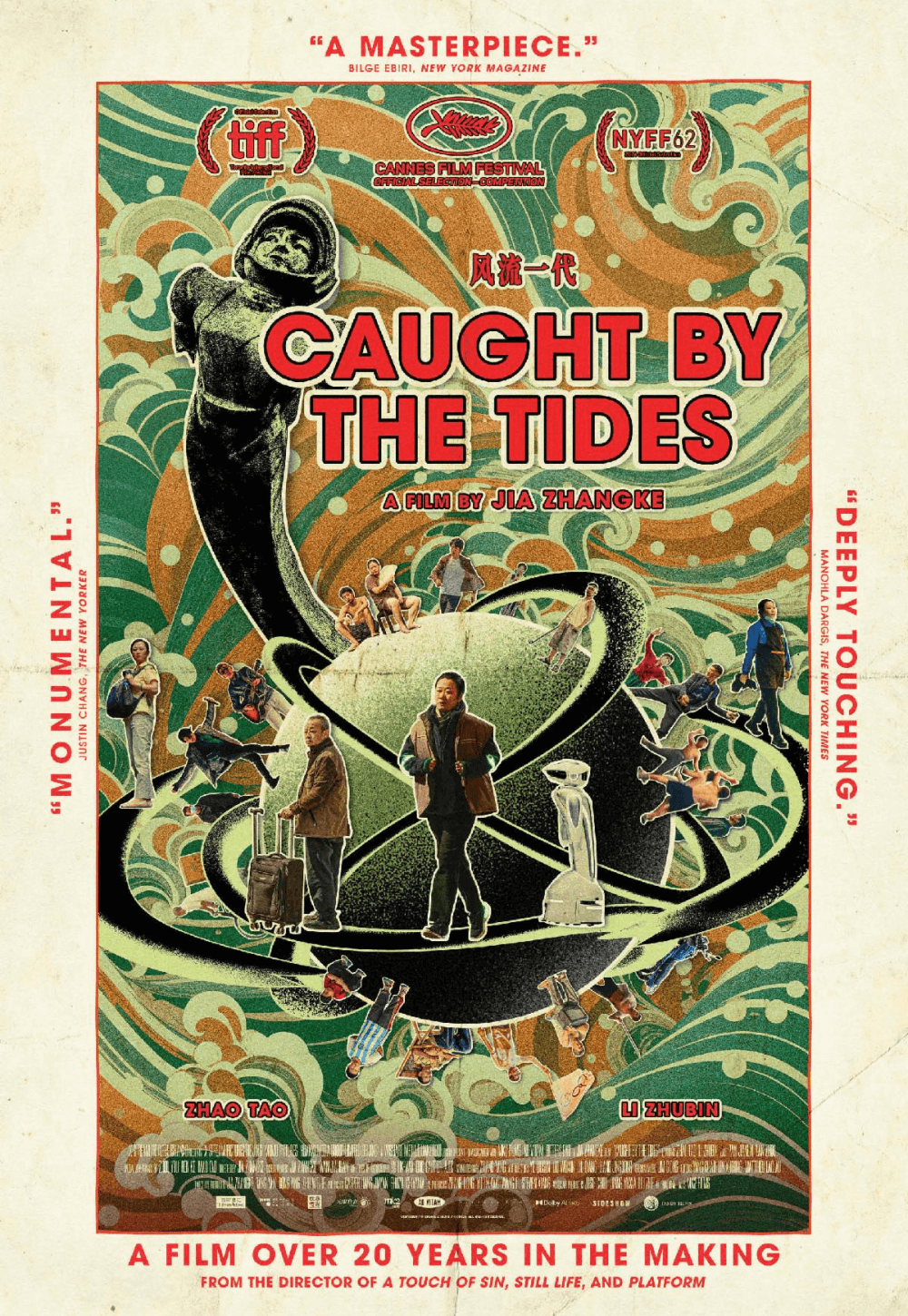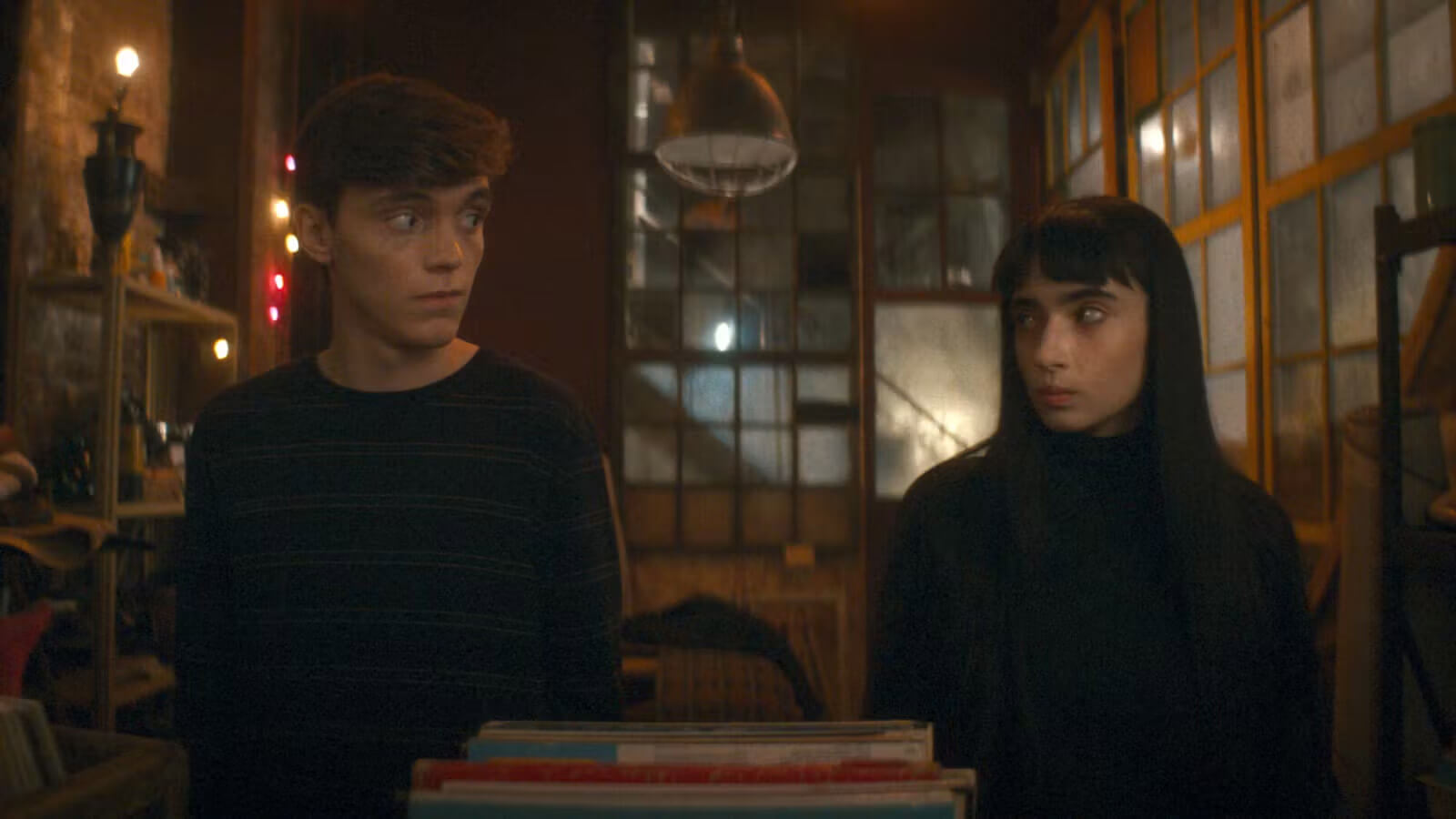
Humanist Vampire Seeking Consenting Suicidal Person
By Brian Eggert |
Note: This review was originally posted from the 43rd Minneapolis St. Paul International Film Festival on April 23, 2024. It has since been edited and expanded. The film arrives in theaters on June 21, 2024.
Humanist Vampire Seeking Consenting Suicidal Person is among the best of the recent YA romances involving an awkward adolescent whose particular brand of monstrosity becomes a metaphor for teenage angst, sexual anxiety, or some other relatable emotion. Most romances of this sort prove kitschy or desperately hip, assembled with the commercially viable teenage viewer sensibilities in mind. See everything from the Twilight series to 2013’s Warm Bodies to this year’s Lisa Frankenstein. But Québécoise director Ariane Louis-Seize’s debut feature confronts heavy issues, such as not fitting in or having suicidal thoughts, with the emotional layers of an arthouse film instead of the usual safety net supplied by those mainstream alternatives. Louis-Seize manages to balance a hint of transgressiveness within an accessible story, without conforming to Hollywood commercial standards. Its appeal recalls Tim Burton’s work on Edward Scissorhands (1990), with just enough weirdness and idiosyncrasy to avoid being labeled conventional, yet with a relatable story that will make its eccentric target audience feel seen.
An excellent Sara Montpetit plays Sasha, the daughter of a vampire family that sees her as “impaired” since she empathizes with her potential victims too much to bite and drink from them. No doubt, her feelings stem from childhood trauma related to a birthday clown her family hired both as entertainment and the main course. Ever since, to some amount of shame, her fangs haven’t come in. Imagine being born normal in the Addams family, and you get the idea. Though her father (Steve Laplante) remains supportive of his late-blooming daughter, her mother (Sophie Cadieux) cracks down, prompting an intervention that will force the youthful 68-year-old Sasha to hunt without relying on a family member. Sasha eventually finds a solution in Paul (Félix-Antoine Bénard), a disturbed and bullied high-schooler who considers ending his life. If Paul wants to die, then Sasha can help without turning him into unwilling prey. But before she drinks from him, Sasha helps Paul check off a few bucket list items before he goes.
Vampire fiction has no shortage of bloodsuckers who take a moral stance against killing, despite their primary drive to exsanguinate their victims to survive. The examples range from Brad Pitt’s Louis de Pointe du Lac in Neil Jordan’s wonderful Interview with the Vampire (1994)—or, if you prefer, Jacob Anderson’s take on the character in AMC’s series based on Anne Rice’s novel—to Robert Pattinson’s sparkly skinned emo-boy in the Twilight movies. These inward, tortured creatures grapple with their existence, and viewers identify with their discontentment with social norms. Humanist Vampire’s script by Louis-Seize and Christine Doyon occasionally resembles Let the Right One In (2008) and Byzantium (2013) a little too closely, complete with an outsider teen boy meeting a female vampire who becomes his only friend and defends him from bullies. Still, the film handles the material in a manner where characters come first, making those comparisons true but hardly detrimental.
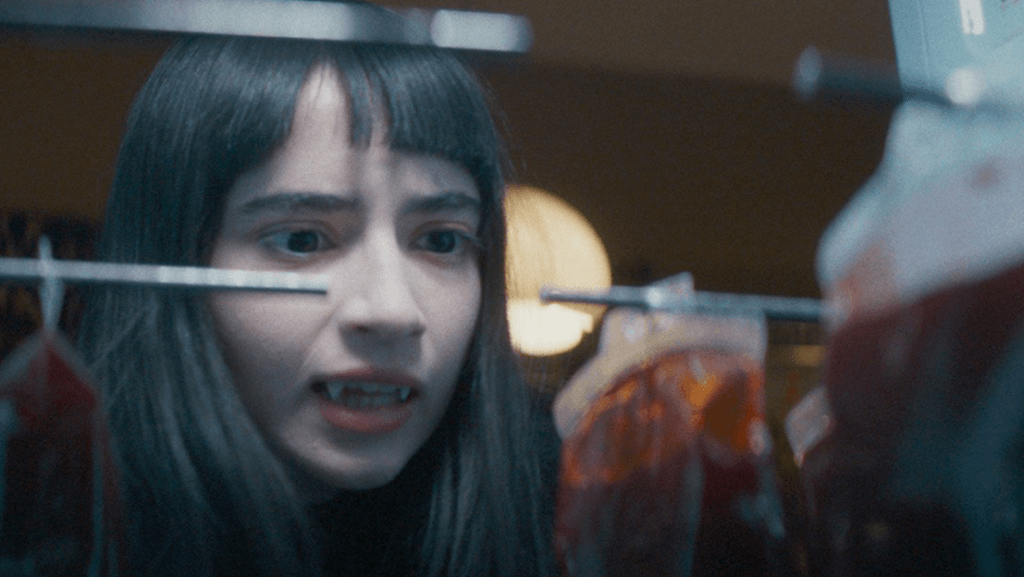 Many similarly themed movies tend to get lost in the third act, relying on monster-laden thrills to resolve the character conflicts. A Hollywood version of this story might entail a CGI battle involving Paul’s bullies or maybe the authorities targeting Sasha; you see this kind of thing in last year’s dull Renfield, which can feel like an action movie more than a horror comedy. Louis-Seize’s quiet and effective movie never sacrifices its low-key charms for genre sensationalism; instead, it makes Sasha and Paul feel like fleshed-out characters who have a complex relationship, existing somewhere between food and friends. Armed with a familiar brand of macabre bloodsucker humor reminiscent of What We Do in the Shadows (either the 2014 feature or the great FX series), the story remains grim, if also good-humored, despite a few genuinely disturbing flourishes. For instance, Paul’s relationship with animals hints at something unsettling brewing beneath his reserved and frightened surface.
Many similarly themed movies tend to get lost in the third act, relying on monster-laden thrills to resolve the character conflicts. A Hollywood version of this story might entail a CGI battle involving Paul’s bullies or maybe the authorities targeting Sasha; you see this kind of thing in last year’s dull Renfield, which can feel like an action movie more than a horror comedy. Louis-Seize’s quiet and effective movie never sacrifices its low-key charms for genre sensationalism; instead, it makes Sasha and Paul feel like fleshed-out characters who have a complex relationship, existing somewhere between food and friends. Armed with a familiar brand of macabre bloodsucker humor reminiscent of What We Do in the Shadows (either the 2014 feature or the great FX series), the story remains grim, if also good-humored, despite a few genuinely disturbing flourishes. For instance, Paul’s relationship with animals hints at something unsettling brewing beneath his reserved and frightened surface.
After generating buzz on the festival circuit over the last year or so, it’s fitting that Louis-Seize’s film receives its US debut from Drafthouse Films during Pride Month. If there’s a common thread among vampire movies, it’s the tendency for these outsiders to stand as symbols for queerness, difference, and forbidden desires. Just watch Joel Schumacher’s delightfully queer-coded The Lost Boys (1987), a cult favorite with enough technical polish to gloss over the nonsensical details throughout. But then, this theme goes back to early vampire stories, such as Joseph Sheridan Le Fanu’s 1872 book Carmilla, about a sapphic love between the book’s first-person narrator who’s visited night after night by a female vampire. Humanist Vampire could be seen as a story about two outcasts who find each other. Though they seem to like one another in that way, their mostly platonic relationship, with mere hints of romance, finds them bonding in their shared social exclusion. Although it’s best not to label their relationship or what draws them together in symbolic terms, the material lends itself to multiple interpretations.
Shot in Montreal, the film unfolds mostly at nighttime, with cinematographer Shawn Pavlin capturing the vampire’s dark environs in otherwise clear imagery that’s presented with measured pacing by editor Stéphane Lafleur. The scene where you’ll fall in love with these characters finds Paul, who has a perpetually terrified expression, standing in Sasha’s bedroom, hoping to die. She puts on a record of “Emotions” by Brenda Lee, and each of them lets their guard down for an extended shot that’s charming in Paul’s stiff dancing and Sasha’s lost-in-the-moment lip synching. They both feel a relatable sense of first-timer anxiety about killing and dying, yet it’s a familiar anxiety for an initial sexual encounter. But where other examples in this genre consider vampirism as a symbol of sexual repression of one form or another, this one has a symbolic open-endedness that makes it even more sympathetic. With vampires often providing allegories but rarely delivering them with the tenderness they deserve, Humanist Vampire Seeking Consenting Suicidal Person is a delightful alternative, offering a sweet, funny, and thoughtful version of a familiar story.
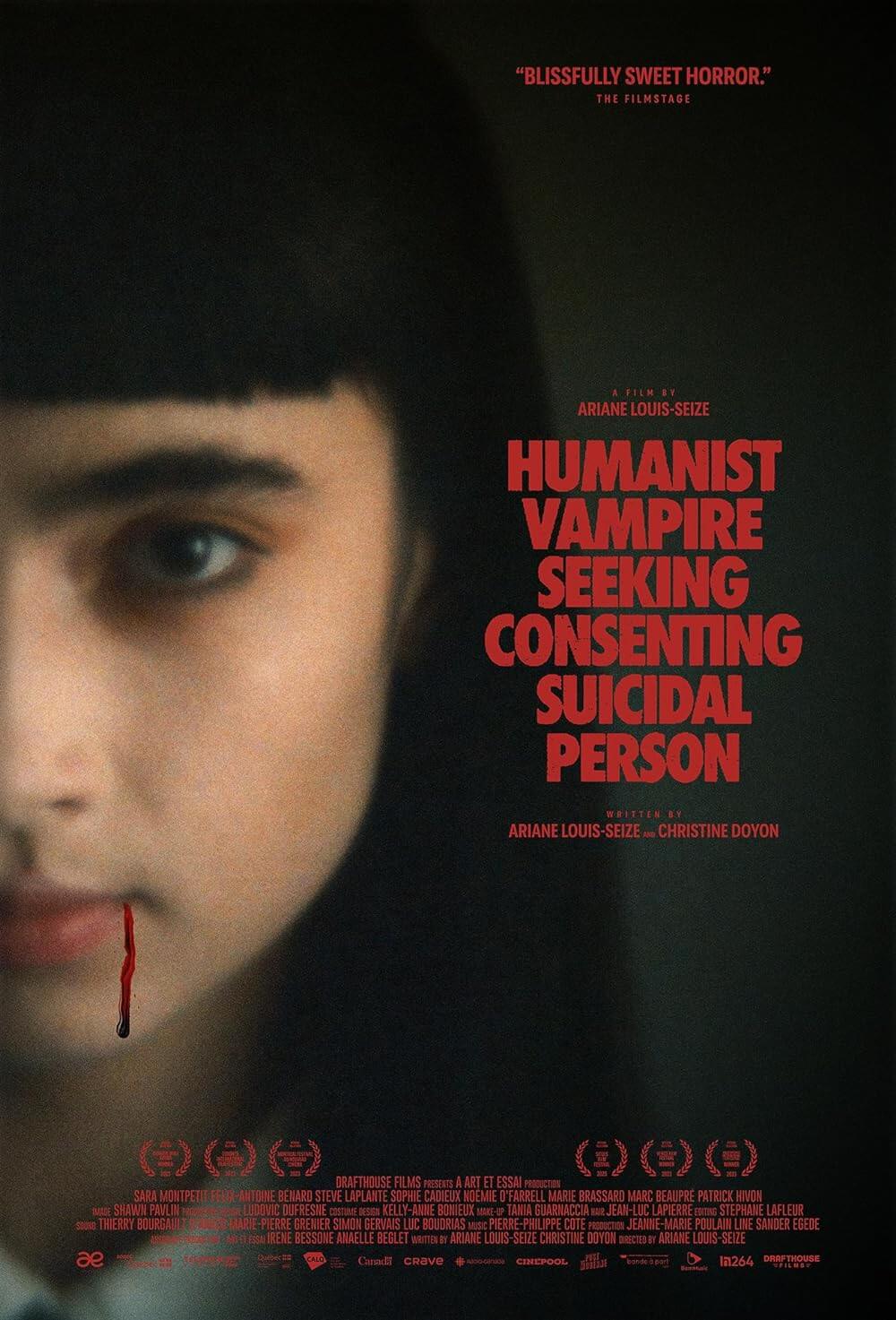
Consider Supporting Deep Focus Review
I hope you’re enjoying the independent film criticism on Deep Focus Review. Whether you’re a regular reader or just occasionally stop by, please consider supporting Deep Focus Review on Patreon or making a donation. Since 2007, my critical analysis and in-depth reviews have been free from outside influence. Becoming a Patron gives you access to exclusive reviews and essays before anyone else, and you’ll also be a member of a vibrant community of movie lovers. Plus, your contributions help me maintain the site, access research materials, and ensure Deep Focus Review keeps going strong.
If you enjoy my work, please consider joining me on Patreon or showing your support in other ways.
Thank you for your readership!
Brian Eggert | Critic, Founder
Deep Focus Review


